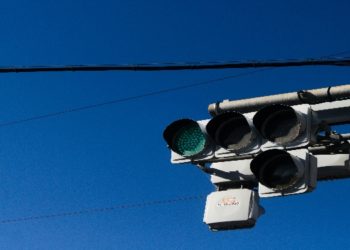Recent reports indicate that 1.3 million Renault and Nissan diesel vehicles may have been fitted with cheat devices, according to investigations by UK law firm Harcus Parker. The law firm alleges that the car manufacturers have installed the devices in the engine management systems of the vehicles to cheat emissions tests. These devices detect when a vehicle is undergoing an emissions test and subsequently adjust the engine’s performance to minimise emissions. Once the test is complete, the system returns to its previous settings, allowing the vehicle to emit harmful levels of pollutants during normal use.
This is not the first time that Nissan and Renault have been accused of emissions cheating. In 2015, Volkswagen was exposed as having used similar tactics to cheat emissions tests. In the wake of the Volkswagen scandal, several other car manufacturers, including Nissan and Renault, were also found to have been using similar methods to gain their emission certification.
The effect of diesel emissions on the environment cannot be overstated. Air pollution is one of the leading causes of premature death worldwide, with exposure to particulate matter from diesel emissions linked to heart disease, lung cancer, and other serious health problems. Vehicle emissions also contribute to climate change, with the transportation sector responsible for around a quarter of global CO2 emissions.
Given the potentially devastating consequences of emissions cheating, car manufacturers must be held to account for their actions. Here, we take a closer look at the allegations against Nissan and Renault and the wider implications of cheating on car emissions.
Affected Vehicles
According to Harcus Parker, the alleged cheat devices were installed in several Renault and Nissan diesel vehicles produced between 2009 and 2018. These vehicles include popular models like the Renault Clio, Megane, and Kadjar, as well as Nissan’s Qashqai, Juke, and X-Trail.
The law firm is bringing a class action lawsuit against both car manufacturers on behalf of UK drivers who bought or leased affected vehicles. Given the emissions cheating, they are seeking compensation for the difference in value between the vehicles as they were marketed and their actual worth. Harcus Parker firmly believes that customers have been charged excessively for their cars and should receive compensation of approximately £5,000 each.
Renault and Nissan have both denied any wrongdoing, with a spokesperson for Renault stating that all their vehicles comply with European regulations and Nissan stating that their vehicles meet all applicable emissions laws and regulations.
Potential Consequences of Emissions Cheating
The use of cheat devices by car manufacturers has wide-ranging implications, both for public health and the automotive industry. From a public health perspective, the impact of diesel emissions on air quality is well-documented. Studies have shown that exposure to particulate matter from diesel emissions can lead to a range of health problems, including heart disease, stroke, respiratory illness, and cancer. Certain demographics, such as children, the elderly, and those with pre-existing health conditions, are especially at risk.
The use of cheat devices can significantly worsen the problem of air pollution by allowing vehicles to emit higher levels of pollutants than would be allowed under normal circumstances. This not only harms public health but also contributes to climate change by releasing harmful greenhouse gases into the atmosphere.
The fallout from the Volkswagen emissions scandal has already had significant repercussions for the automotive industry. German prosecutors fined the German car manufacturer €1 billion, while several high-ranking executives have been arrested and charged with fraud. Other car manufacturers found to have cheated on emissions tests have also faced significant fines and reputational damage from thousands of diesel emission claims. For additional details regarding the involvement of other automakers, click here.
If the allegations against Renault and Nissan are proven to be true, they, too, could face significant legal and financial consequences. In addition to the lawsuit brought by Harcus Parker, both companies could face fines from regulatory bodies and a loss of trust from consumers.
Conclusion
The allegations against Renault and Nissan are serious and could have far-reaching implications for the automotive industry. Using cheat devices to pass emissions tests is a blatant violation of public trust, with potentially devastating consequences for public health and the environment. Consumers have a right to know that the vehicles they purchase are safe and compliant with all relevant regulations, and the automotive industry must prioritise the health and well-being of the public over profit.
It remains to be seen whether the allegations against Renault and Nissan will be proven, but one thing is clear: the use of cheat devices to pass emissions tests is unacceptable; the practice must be abolished to protect the planet. Continued efforts to hold car manufacturers accountable for diesel claims and their actions are paramount to ensure a cleaner, healthier future for all.
David Prior
David Prior is the editor of Today News, responsible for the overall editorial strategy. He is an NCTJ-qualified journalist with over 20 years’ experience, and is also editor of the award-winning hyperlocal news title Altrincham Today. His LinkedIn profile is here.




![7 Best POS Software in the UK [2026 Edition]](https://todaynews.co.uk/wp-content/uploads/2026/02/7-Best-POS-Software-in-the-UK-2026-Edition-360x180.png)





































































